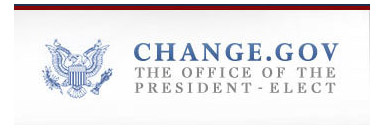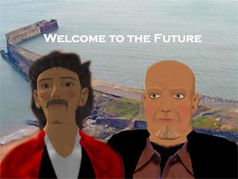Archive for January, 2009
 |
31. January 2009 – 14:42 by E-Voting.CC
|
The Austrian student union elections of May 2009 are planned to be the first binding elections to be held via an electronic voting channel in Austria. After the E-Voting tests for these student elections in 2003 and for the presidential elections of 2004, the upcoming elections will have binding character.
Back in 2000 the student union, represented by Martin Faißt at that time, requested a channel for distance voting from the minister in charge. On February 1st the law has been changed accordingly after a parliamentary decision. Due to the fact that the citizens cards were non existent at that time, a scientific group has been founded in order to prepare E-Voting test elections, which were held in 2003 and 2004 as mentioned above.
Now an E-Voting channel will be realized during the election which are scheduled for May 2009. Students who reside abroad or have to work in other regions of Austria will have the opportunity to vote via this online channel. According to the student union act a working group was founded which is lead by the Ministry of Science. The system will be programmed by the Spanish election software specialist Scytl, it will be hosted by the Austrian Federal Computing Centre (BRZ). The electronic internet voting channel will be opened one week before the paper election period in order to minimize the risk of failure on a single day.
Read the rest of this entry »
Posted in News, Projects | 2 Comments »
 |
30. January 2009 – 23:21 by Fraser Henderson - ICELE
|
 With over three quarters of Europeans unaware of the forthcoming EU parliamentary elections, an innovative viral marketing campaign has been devised to help spread the word. The aim is to improve the low voting and engagement figures and achieve a turnout of more than 25% in each of the key member states.
With over three quarters of Europeans unaware of the forthcoming EU parliamentary elections, an innovative viral marketing campaign has been devised to help spread the word. The aim is to improve the low voting and engagement figures and achieve a turnout of more than 25% in each of the key member states.
While responsible governments would normally vaccinate against any sort of outbreak, in this instance they are actively encouraging citizens to ‘catch the bug’. And this bug is every bit as infectious as the real thing - yet it’s completely harmless.
In-fact, it’s probably the opposite of a ‘bad bug’, if there is such as thing. The idea is to encourage email users to append a simple strap-line to their email signatures. The traditional email footer is occupied by variants of the corporate disclaimer blended with increasingly conscious notions, such as environmental pleas.
The code, available in a number of languages, has already been integrated into the email signature of 17,000 email users’. However, the project has an ambitious target of 20 million users. This simple yet effective measure is another example of the understated power of one of the most basic yet fundamental participation tools, email. Get your bug today and support this important campaign.
Posted in good practice | 1 Comment »
 |
30. January 2009 – 19:17 by Roberto Zarro
|

Participation is a complex and multifaceted issue. Why not improving participation processes by means of a participatory practice? This has been the approach adopted during “Parteci P.A., the Meeting of the Participatory Democracy”, which took place form 21th to 23th of January, in Modena, Emilia-Romagna, Italy. An Open Space Technology (OST) - a methodology for the design and organization of participatory events and meeting, through the direct contribution of the same participants – has been held as main method to debate about the future perspective of participatory policies.
Visions, hypothesis and concrete proposals about the possibility to improve participation processes has been shared among the participants. In an opening plenary session, more than one hundred people proposed the issues to deal during the rest of the day in specific workgroups, composed on a self-selection basis, and aiming to the production of thematic instant reports.
Read the rest of this entry »
Posted in TuTech | No Comments »
 |
28. January 2009 – 17:18 by Bengt Feil
|
Writing letters to elected representatives has always been one of the more effective ways for citizens to state their concern for a political question or to make their opinion clear to “their” member of parliament. This seems perfectly reasonable: If hundreds or even thousands members of the constituency write to a member of parliament how can he or she ignore the statements – both as a responsible representative and a politician who would like to get re-elected?
In the United States this practice is often used by citizens to reach out to both the members of the Senate and the House of Representatives. In more recent years the “letter” on paper was often exchanged by an email. But there is one particular problem with email in this setting: There is no post stamp on it and therefore it can not be determined on first glance if the email is really from a member of the parliamentarian’s constituency – This does limit the effect of email in comparison to letters (one could argue that there is also a psychological impact related to the fact that a member of parliament gets a “real letter” signed by a “real citizen”). Does this mean that the proliferation of the internet and the social networks developing in it does not affect this practice of political participation? No, but the influence is indirect.
Read the rest of this entry »
Posted in Uncategorized | No Comments »
 |
28. January 2009 – 11:59 by Madarász Csaba
|
 After the summer TechTools workshop in Prague, organized by Transitions Online, which has gathered many organizations from the CEE region, dealing with transparency issues and the possibilities of new technologies, the second round of the workshop is boundled together with a Barcamp event, in Riga, Latvia in the begining of February, and the CEE CN in proud to participate on this event.
After the summer TechTools workshop in Prague, organized by Transitions Online, which has gathered many organizations from the CEE region, dealing with transparency issues and the possibilities of new technologies, the second round of the workshop is boundled together with a Barcamp event, in Riga, Latvia in the begining of February, and the CEE CN in proud to participate on this event.
Read the rest of this entry »
Posted in Projects, Trends, TuTech, good practice | 1 Comment »
 |
26. January 2009 – 19:56 by Rolf Luehrs
|
 For almost a decade I have been involved in the conceptualisation and realisation of eParticipation projects. Most of these projects were so-called moderated online discourses.
For almost a decade I have been involved in the conceptualisation and realisation of eParticipation projects. Most of these projects were so-called moderated online discourses.
The basic idea of these discourses is to create a meaningful link between the general public or the electorate and politicians or governments, between those considered to be affected by political decisions and those who have to make the decisions.
The methodology we have developed for conducting moderated online discourses is called DEMOS. It has been designed to keep the threshold for participants as low as possible while simultaneously enabling a structured and result-orientated discussion. Users can contribute anonymously and spontaneously, they can participate actively or as observers, they can write contributions, take part in polls or surveys or communicate with other users. The one requirement is registration, including a valid email address.
We – my team and I at TuTech Innovation GmbH – have applied this model to different themes and locations with varying cultural and environmental backgrounds. Whenever we talked to the people responsible for deciding whether or not the public should be involved online, we were asked almost identical questions and confronted with similar objections.
I thought it might be worth discussing these questions openly in a series of blog posts. Here is my answer to the first out of the five questions:
Is the general public really competent to discuss complex political issues?
There are two problems which make it hard to answer this question straight with yes or no. The first problem has to do with the term general public. This term is usually used in opposition to politician or elected representative. But there is a second underlying distinction which is that between layman and expert. Seen from this perspective the public is on the layman side of the equation. Members of the public are those lacking in-depth knowledge about specific policies and are furthermore neither able nor willing to think in terms of the general public interest.
Although it is very likely that some participants will always confirm this cliché, it is only half of the truth. The other half is that citizenship is only one of the various roles we all have to play in modern society. Whatever else we are, we are all citizens. And as long as an online discourse manages to attract participants with different professional backgrounds, a lot of expertise will be available from which the discussion can benefit.
The second problem has to do with the difference between the capability of the individual and the results achieved by the cooperation of many participants. In that regard especially, online discourses have the ability to widen the limited horizons of individuals. Particular views and arguments will be challenged by opposing statements and, in most cases at least, the weakest arguments will quickly be sorted out by the online community. Furthermore, different aspects will be addressed by different participants and fit like different parts of a puzzle. Shining a light on all imaginable aspects of a given subject in a very short time can be regarded as the biggest strength of online discourses.
For these reasons my final answer is: yes, we are!
Posted in Projects, Tools, Visions | 5 Comments »
 |
20. January 2009 – 18:17 by Bengt Feil
|
Forecasts of how technology and society will develop in the future are always difficult and get even more difficult if one tries to look in the far future - Or as the German comedian Volker Pispers said: “Would you have believed me ten years earlier that Romania will be part of the NATO?” However the PEW Internet and American Life Project did try to forecast the Internet of 2020 by asking a set of average persons and expert how much they would agree to certain scenarios of how the net will have changed in 2020. You can find the whole report here but I would like to highlight a few of the results.
Read the rest of this entry »
Posted in Trends, Visions | No Comments »
 |
19. January 2009 – 16:30 by Orebro University
|
Residents in Örebro city can right now speak up on how they want one of the city’s square to be designed. For a time, there have been efforts to change the city center and now the work has come to improve the square. To find out what people think, there is currently functionality at the city’s web site that allows residents to participate in the change process and to make suggestions. There is a current draft (presented at the site) and the residents can say what they think about it, or come up with new own ideas. Residents have until the 13th of February to speak up. The purpose of changing the square is to make the city more attractive, therefore are the residents opinions valuable.
Posted in Uncategorized | No Comments »
 |
19. January 2009 – 11:38 by Zebralog / Hans Hagedorn
|
 Barack Obama’s Transition Team promised to build the most open and tansparent transition of all times. How did they carry on Obama’s sucessful online election campaign and how did they involve citizens online? We had a close look at the engagement tools used on change.gov - the Citizen’s Briefing Book, the discussion forum “Join the Discussion” and a tool called “Open for Questions”. Furthermore we give some predictions of the next steps of Obama’s Administration Online-Team.
Barack Obama’s Transition Team promised to build the most open and tansparent transition of all times. How did they carry on Obama’s sucessful online election campaign and how did they involve citizens online? We had a close look at the engagement tools used on change.gov - the Citizen’s Briefing Book, the discussion forum “Join the Discussion” and a tool called “Open for Questions”. Furthermore we give some predictions of the next steps of Obama’s Administration Online-Team.
Read the rest of this entry »
Posted in good practice | 5 Comments »
 |
16. January 2009 – 14:58 by Fraser Henderson - ICELE
|
Google has recently announced the suspension of a number of its services, notably Google Video, in a recent move to de-clutter and streamline during the current economic crisis. Included among the upcoming closures are: Google Notebooks, Google Catalogs, Dodgeball, Google Mashup Editor, and future development of Jaiku.
Will this start a new trend? Is your third party service at risk of disappearing in 2009? More seriously though, can you imagine the wreckage if a mainstream application like Google Maps or Facebook closed overnight?
 The real world has is turning ‘unreal’ to save money too. The ‘Skinningrove’ community in Northern England is refurbishing their local jetty – but only in the virtual world. The replica will be placed in SecondLife, complete with unveiling by MP Ashok Kumar, or at least his avatar. Boat trips will commence shortly afterwards.
The real world has is turning ‘unreal’ to save money too. The ‘Skinningrove’ community in Northern England is refurbishing their local jetty – but only in the virtual world. The replica will be placed in SecondLife, complete with unveiling by MP Ashok Kumar, or at least his avatar. Boat trips will commence shortly afterwards.
The idea is not as crazy as it sounds; ultimately it is hoped that this will promote the real refurbishment of the jetty and highlight the new opportunities that regeneration might bring. Visit the project wiki to find out more.
Posted in Uncategorized | No Comments »

 With over three quarters of Europeans unaware of the forthcoming EU parliamentary elections, an innovative viral marketing campaign has been devised to help spread the word. The aim is to improve the low voting and engagement figures and achieve a turnout of more than 25% in each of the key member states.
With over three quarters of Europeans unaware of the forthcoming EU parliamentary elections, an innovative viral marketing campaign has been devised to help spread the word. The aim is to improve the low voting and engagement figures and achieve a turnout of more than 25% in each of the key member states.
 After the summer
After the summer 








